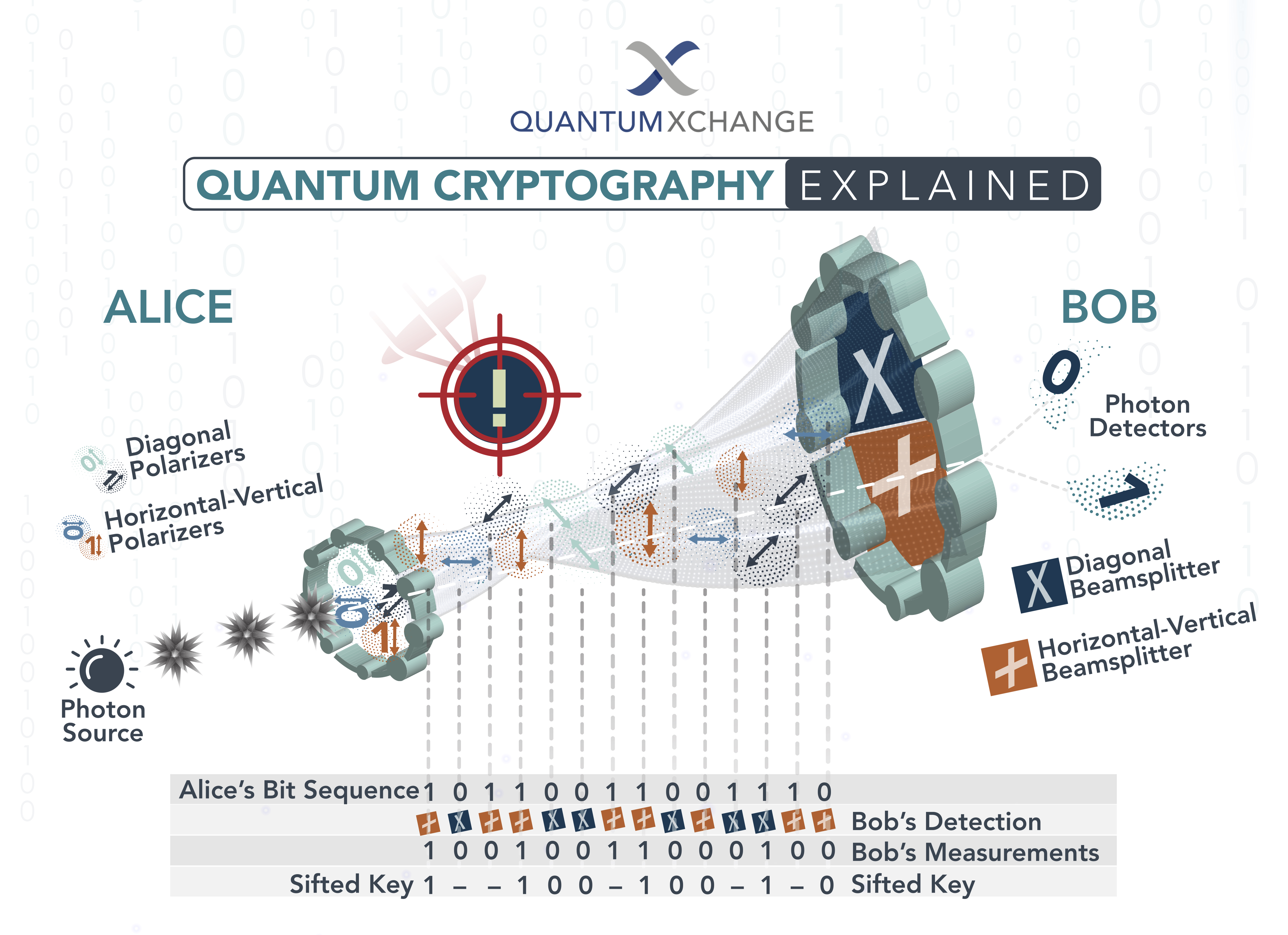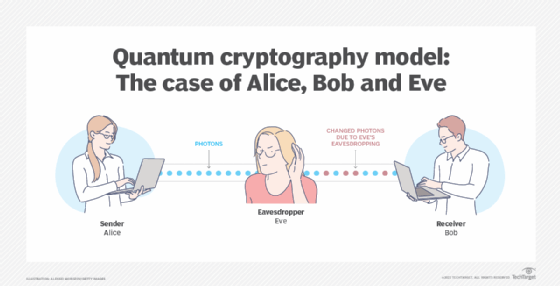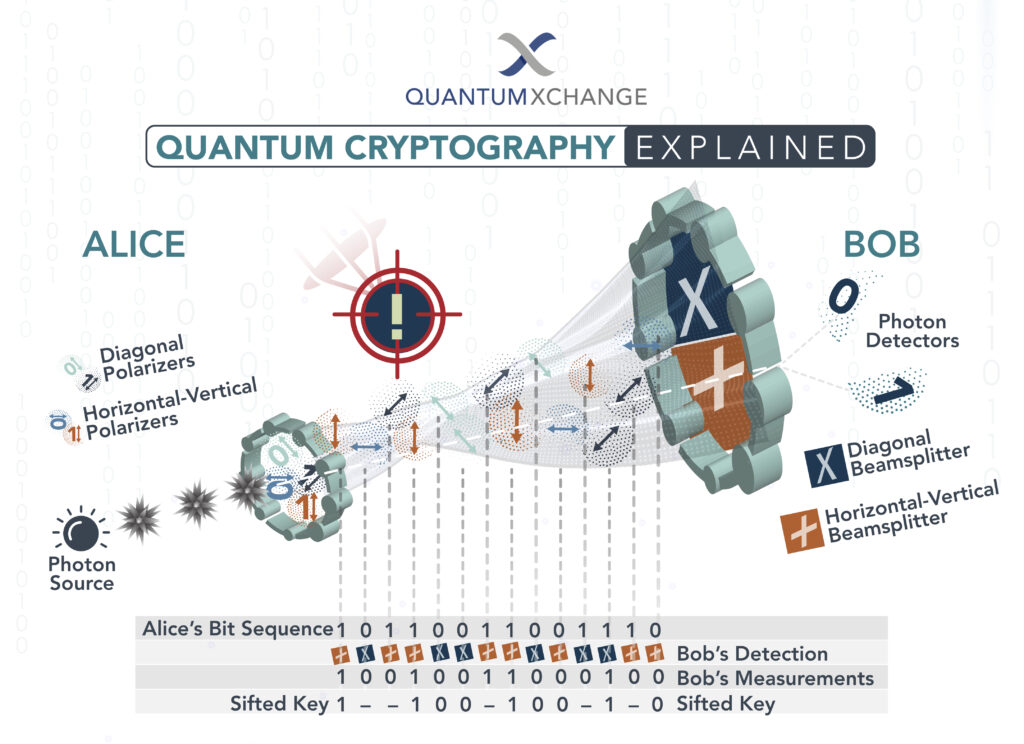Quantum cryptography is a fascinating topic that has captured the attention of scientists and security experts around the world. This innovative technology uses the principles of quantum mechanics to create unbreakable codes and protect sensitive information from prying eyes. But despite its potential, the question remains: is quantum cryptography actually being used in practice?
The short answer is yes. While quantum cryptography is still in its early stages of development, there are already several companies and organizations that are using it to secure their communications. From government agencies to financial institutions, quantum cryptography is becoming an increasingly popular choice for those who need the highest level of security possible. So let’s take a closer look at how this technology works, and how it is being used to protect our most sensitive information.

What is Quantum Cryptography?
Quantum cryptography is a method of data encryption and transmission that uses principles of quantum mechanics. It is a secure method of communication that is impossible to intercept or decode without the knowledge of both the sender and the receiver. Unlike traditional encryption techniques, quantum cryptography is based on the uncertainty principle of quantum mechanics, which states that it is impossible to measure the state of a quantum system without changing its state. This means that any attempt to measure an encrypted message can be detected, allowing for secure communication.
Is Quantum Cryptography Used?
Quantum cryptography is a relatively new technology that has been gaining in popularity in recent years. As its security features become better known, more organizations are beginning to use it to protect sensitive data. For example, it is now being used in banking and finance, government, and defense systems. It is also being used by companies to protect confidential information, such as customer data. Furthermore, quantum cryptography is being used by large organizations and corporations to ensure secure communication between their offices, as well as with other organizations.
Advantages of Quantum Cryptography
One of the main advantages of using quantum cryptography is its ability to provide secure communication. As mentioned earlier, quantum cryptography is based on the uncertainty principle, which makes it virtually impossible to intercept or decode an encrypted message. This means that organizations can securely transmit sensitive data without worrying about it being intercepted or decoded. Additionally, quantum cryptography allows for the transmission of data over long distances without the need for physical connections, such as cables or wires. Finally, quantum cryptography is much faster than traditional encryption techniques, allowing for faster communication.
Disadvantages of Quantum Cryptography
The main disadvantage of quantum cryptography is its cost. Since it is a relatively new technology, the cost of implementing it can be quite high. Additionally, quantum cryptography requires specialized hardware and software, which can also increase the cost. Finally, quantum cryptography is still an emerging technology and there are still some security issues that need to be addressed. As such, organizations should weigh the costs and benefits before deciding whether to adopt quantum cryptography.
Frequently Asked Questions about Quantum Cryptography
Quantum cryptography is an emerging field of science that has the potential to revolutionize the way we communicate and store information. It utilizes the principles of quantum mechanics to create a secure, unbreakable encryption system for data transmission and storage.
What is Quantum Cryptography?
Quantum cryptography is a form of encryption that utilizes the principles of quantum mechanics to create a secure and unbreakable form of communication. It uses the principles of quantum entanglement, superposition, and interference to generate a random key that can be used to encrypt and decrypt data. The randomness of the key ensures that it cannot be guessed or broken by any traditional methods. This makes it ideal for secure communication, such as banking and military operations.
Quantum cryptography also utilizes quantum teleportation, which is a process that can securely transmit information over long distances with no loss of data. This makes it perfect for creating secure networks between remote locations.
How Does Quantum Cryptography Work?
Quantum cryptography utilizes the laws of quantum mechanics to generate a random key that can be used for encryption and decryption. The key is created using the principles of quantum entanglement, superposition, and interference. The randomness of this key ensures that it cannot be guessed or broken by any traditional methods.
The key is then used to encrypt the data, which is then sent to the receiver. The receiver uses their own key to decrypt the data, ensuring that only the intended recipient can access the information. This process ensures that the data is secure and cannot be intercepted or modified in any way.
What Are the Benefits of Quantum Cryptography?
The most significant benefit of quantum cryptography is its ability to provide secure communication. It is virtually impossible to crack a quantum encryption key, making it an ideal choice for sensitive data transmission and storage. Quantum cryptography is also faster and more efficient than traditional encryption methods, making it an attractive choice for large-scale applications.
Another benefit of quantum cryptography is its ability to transmit data over long distances with no loss of data. This makes it ideal for creating secure networks between remote locations.
What Are the Drawbacks of Quantum Cryptography?
One of the main drawbacks of quantum cryptography is the fact that it is still in its early stages of development. This means that it is not widely available and there are still many challenges that need to be addressed before it can be fully utilized. Additionally, quantum cryptography can be expensive to implement and requires specialized hardware and software.
Another potential drawback is that it is vulnerable to quantum hacking. This is a form of attack that exploits the properties of quantum mechanics to gain access to the encryption key and steal data.
Is Quantum Cryptography Used in Practice?
Yes, quantum cryptography is currently being used in a variety of applications. It is being used in banking and military operations, as well as other secure communication networks. Additionally, quantum cryptography is being explored for use in quantum computing, which has the potential to revolutionize the way we process and store data.

In conclusion, quantum cryptography is a revolutionary technology that has the potential to transform the field of cybersecurity. Although it is not yet widely used, its applications are rapidly expanding, and it is likely to become an increasingly important tool in the fight against cyber threats. As the world becomes more connected and reliant on technology, the need for secure communication systems becomes more pressing, and quantum cryptography offers a promising solution.
In order for quantum cryptography to become more widely used, however, there are still significant technological and practical challenges that need to be overcome. Nevertheless, the potential benefits of this technology are too great to ignore, and efforts to develop and refine quantum cryptography are likely to continue in the years to come. As the field of cybersecurity evolves, quantum cryptography will undoubtedly play an increasingly important role in protecting sensitive information and ensuring the privacy and security of individuals and organizations alike.


